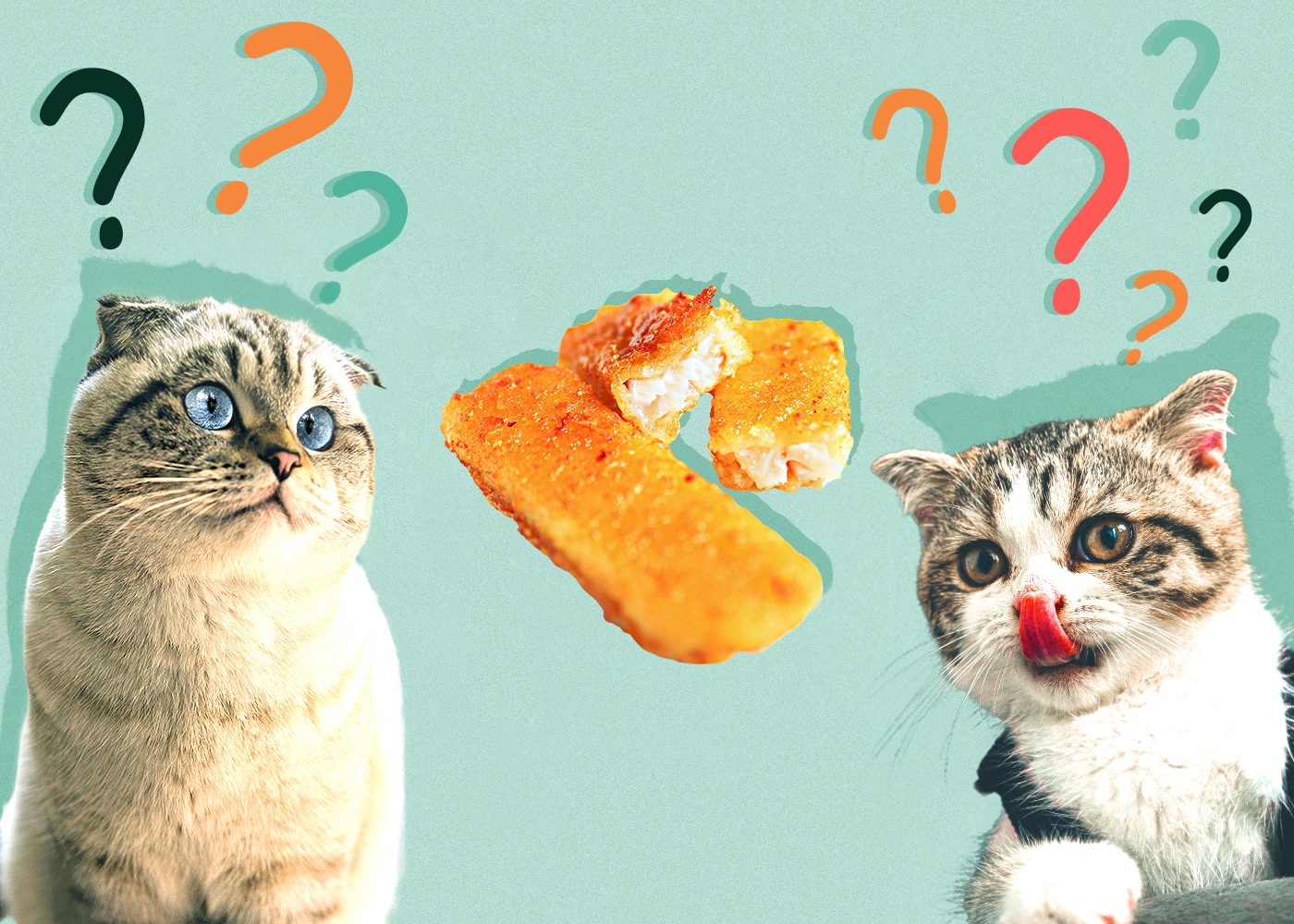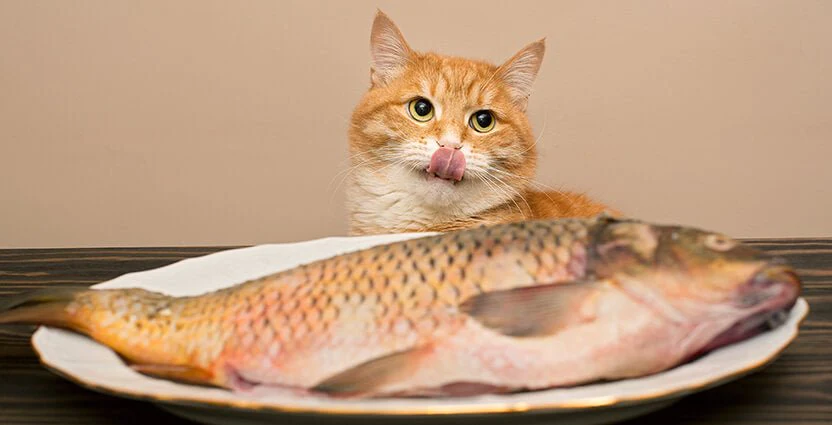Introduction
Cats, known for their discerning tastes, often spark curiosity about sharing our meals. This article explores that can cats eat fish sticks? andthe safety and nutritional aspects of feeding fish sticks to our feline friends, providing insights into whether this popular human dish is suitable for our whiskered companions.

Understanding Cat Diets
A balanced and species-appropriate diet is crucial for a cat’s overall health. While there’s a wide array of cat food options available, many pet owners contemplate sharing human foods with their cats.
Fish sticks, a favorite among many, are a common item in human diets. Before considering sharing them with your cat, let’s delve into the nutritional content of this beloved dish.
Can Cats Eat Fish Sticks?
The million-dollar question: can cats eat fish sticks? We’ll analyze the potential benefits and risks, taking a closer look at the ingredients and additives commonly found in this popular seafood treat.

Nutritional Facts of Fish Sticks
For a comprehensive understanding, we’ll break down the nutritional content of fish sticks. This section aims to assess whether the nutrients present align with the dietary needs of our feline companions.
Cats and Fish
Cats have a natural affinity for fish, but is it always a healthy choice? We’ll discuss the role of fish in a cat’s diet and potential concerns associated with excessive fish consumption.
Moderation
Feeding human foods to cats requires caution and moderation. Learn about the importance of introducing new foods gradually and the specific precautions to take when offering cats a taste of fish sticks.

Signs of Allergies or Discomfort
Recognizing signs of allergies or discomfort in cats is crucial. This section will provide insights into common indicators and guidance on what to do if your cat shows adverse reactions to fish sticks.
Introducing New Foods Gradually
Discover the gradual process of introducing new foods to a cat’s diet. We’ll share tips on observing your cat’s response to changes in its culinary routine, ensuring a smooth transition.
The Role of Veterinarians
Consulting with veterinarians for dietary advice is always recommended. We’ll emphasize the importance of seeking professional guidance to ensure your cat’s nutritional needs are met.
If fish sticks are off the menu, what are some alternative healthy treats for cats? We’ll provide a list of cat-friendly options to add variety to their diet.
Personal Experiences
Explore anecdotes and diverse perspectives as cat owners share their experiences with feeding fish sticks to their pets. Gain insights into how different cats react to this popular human dish.
Cat Preferences and Individual Differences
Just like humans, cats have individual preferences. We’ll discuss how understanding your cat’s tastes can help tailor their diet to meet their unique likes and dislikes.
Can Cats Eat Fish Sticks?
Summing up our exploration, we’ll provide a clear answer to the question. can cats eat fish sticks? The conclusion will be supported by the key points discussed throughout the article.
Conclusion
In conclusion, this article highlights the importance of understanding can cats eat fish sticks and also your cat’s dietary needs. Responsible pet ownership involves making informed choices to ensure the well-being of our feline companions. Whether it’s about fish sticks, other human foods, or specialized cat treats, a balanced and thoughtful approach to their diet is paramount.
FAQS
Fish sticks, while convenient and tasty, may not be the most nutritious option. Typically made from processed fish fillets that are battered and fried, fish sticks often contain added ingredients like breadcrumbs and various seasonings. While they do provide a source of protein and some omega-3 fatty acids from the fish, the nutritional value can vary.It’s essential to consider the overall composition and preparation method. Some fish sticks may be high in saturated fats, sodium, and preservatives due to the frying process and added coatings. For a healthier option, consider baking rather than frying, and check product labels for minimal additives.
Yes, fish can be a nutritious part of a cat’s diet. Fish is a good source of high-quality protein, omega-3 fatty acids, and essential nutrients like vitamin D and iodine. These nutrients are beneficial for a cat’s overall health, supporting their immune system, coat condition, and joint health.
However, it’s important to provide fish in moderation. Too much fish in a cat’s diet may lead to nutritional imbalances
Feeding cats fish fingers is not recommended as a regular part of their diet. While fish, in general, can be a nutritious addition for cats, fish fingers, which are typically processed and may contain additives like breading and seasonings, are not an ideal choice.
Processed foods designed for human consumption often include ingredients that may not align with a cat’s dietary needs.
Fish treats can be a tasty and nutritious option for cats when given in moderation. Fish is a good source of protein and contains omega-3 fatty acids, which can contribute to a healthy coat and support overall well-being.
However, it’s crucial to choose fish treats designed specifically for cats and to offer them in limited quantities. Some commercial fish treats are formulated to be nutritionally balanced for feline dietary needs. Always check the ingredient list to ensure there are no harmful additives, excessive salt, or other ingredients that may be detrimental to your cat’s health.
Certain types of fish can be toxic to cats, posing potential health risks. Fish that are high in mercury or contain certain parasites can be harmful to felines. Tuna, in particular, is a fish that should be given in moderation. While small amounts are generally safe, excessive or regular consumption of tuna can lead to nutritional imbalances, as it lacks certain essential nutrients that cats need in their diet.
Fish that are known to be high in mercury, such as shark, swordfish, king mackerel, and tilefish, should be avoided, as mercury can negatively impact a cat’s nervous system.
1 thought on “Can Cats Eat Fish Sticks? Nutritional Facts 2023”